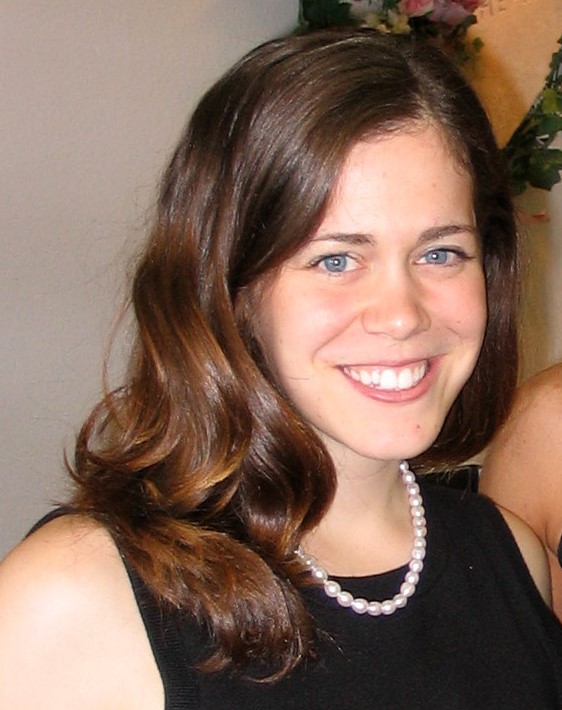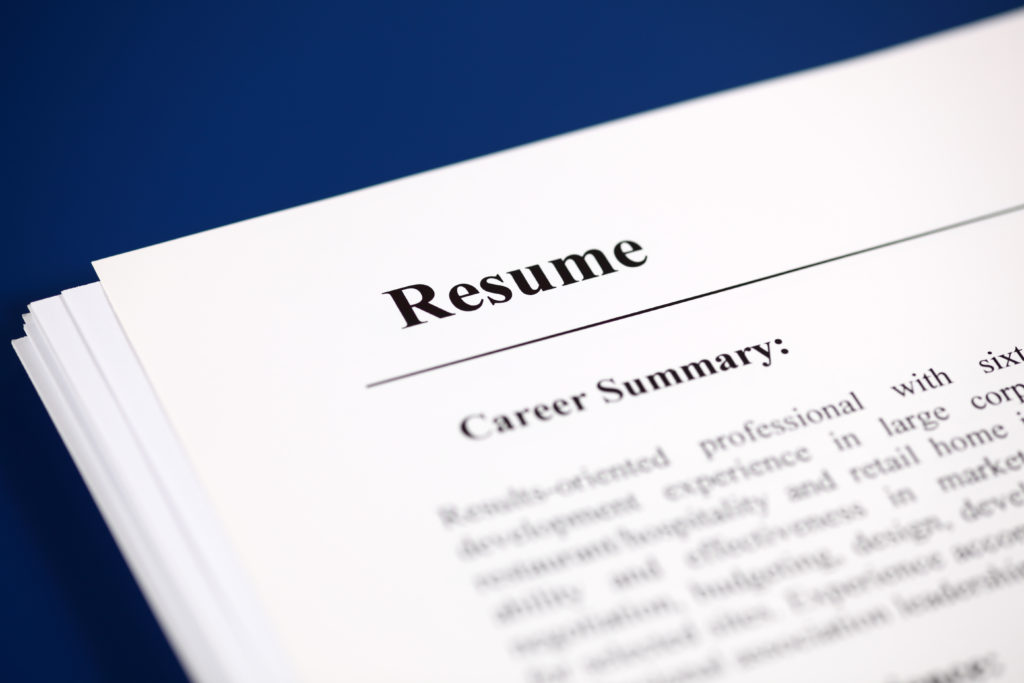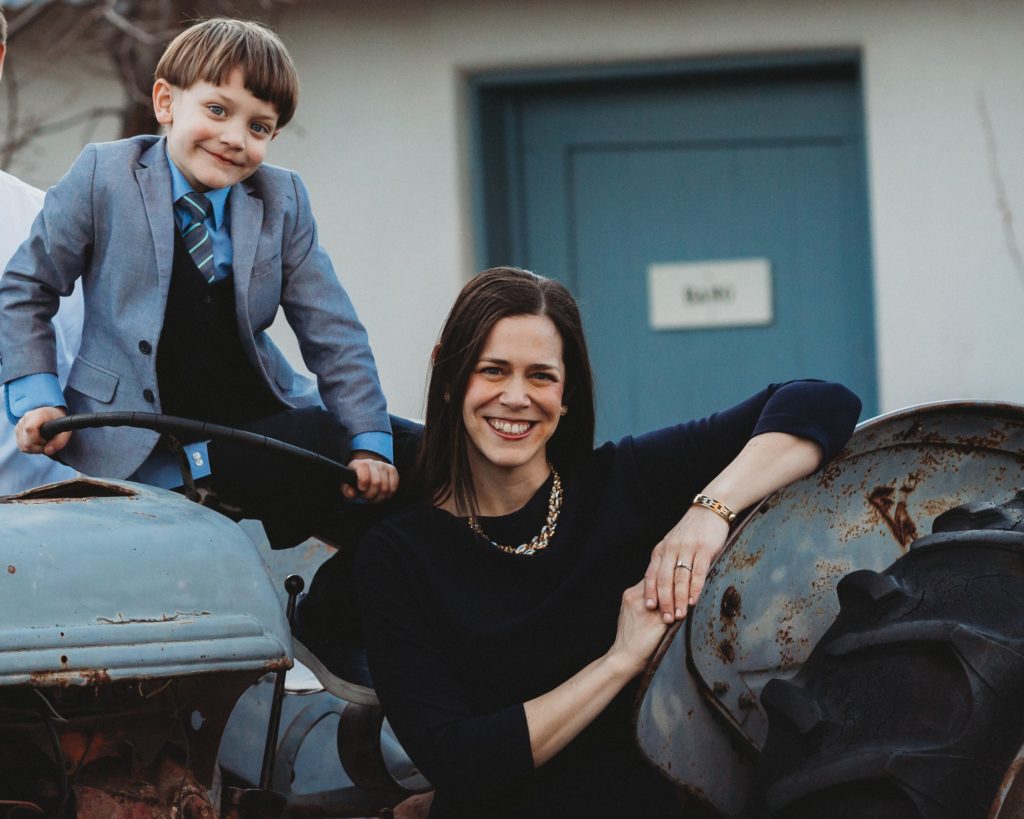
Virtual graduations have come and gone. Parents’ yards are decorated with lawn signs celebrating their sons’ and daughters’ commencement – but I’m sure there are some new grads who find themselves wondering “now what?”, and of equal importance, “how?”.
I can only imagine how difficult it must be for early careerists to be entering the job market in the face of a slowed economy and tremendous uncertainty across industries. Those companies who are hiring are utilizing virtual platforms to conduct interviews and an employee’s first day “at the office” may be on a laptop at the kitchen table.
No generation has experienced this truly unique situation and while I can empathize, I will never fully understand what it must be like. Yet as I prepare to speak to a group of 800 new grads via Zoom in a couple days, I have been trying to put myself in their shoes and remember my own experience seeking that first job after college.
While different, it was tough. I remember feeling the resounding message that I didn’t have relevant experience. It felt like a Catch-22 situation. If no one was willing to hire me without it, how would I ever gain the experiences necessary for growth?

I moved to New York the summer after undergrad to be near my boyfriend (now husband), Matthew, and bring a long-distance relationship to an end. I tried to be proactive and submitted my resume to every position I could find on job boards in healthcare, wanting to get some relevant experience as I prepared to start my Master’s program that fall.
This was before the days of online job banks and electronic applications. I printed a stack of resumes on linen paper and sent them via USPS Priority Mail. I heard back from none. My first week in NYC, I attended a Notre Dame Alumni Club event to try make connections. I handed out several business cards that Notre Dame had given us with my alumni email address. No follow-up emails came.
In perseverance, I remember suiting up, taking the subway, and quite literally pounding the pavement to visit each major hospital in the metro. Carrying a manila envelope to the attention of HR under my arm, I politely dropped off copies of a quasi-custom cover letter and resume at the front desk of each.

It makes me laugh now, knowing that my CV likely landed in the trash receptacle faster than I made my way out the revolving door. This was not small town North Dakota, or even South Bend, IN. This was New York City. I knew no one in the healthcare industry, or any other industry for that matter.
I vividly remember one walk from the subway down 7th Avenue in Park Slope, Brooklyn heading back to the apartment. I spotted a “Help Wanted” sign in the window of a new restaurant. Clearly overdressed and a bit sweaty in my black skirt suit, I stopped in and handed the greeter my resume.
Tired and feeling desperate, I tried not to break into tears when the owner took one look and told me that I had no relevant experience. To my surprise, he offered me a job anyway. I wanted to hug him.

Starting the next morning, I opened up the restaurant and covered the morning shift. Matthew came in on his walk to the subway to buy a breakfast sandwich. He wanted to support me and always left a nice tip!
The remainder of my shift, I spent cleaning and re-cleaning each table out of boredom and made conversation with Sonny, the talkative, Egyptian short-order cook. The restaurant had recently opened and hadn’t yet established it’s base of regular patrons.
The breakfast place was connected to an adjoining Mediterranean restaurant that the owner had me cover as back-up. I remember bringing the menu home to practice pronunciations like baba ganoush and to memorize the offerings. It all was so foreign to me as a Midwest transplant.
Making very little, I continued applying for jobs in both healthcare and women’s clothing. I felt the latter might be helpful (given employee discounts) in acquiring a few more suits for future job prospects.
In one memorably painful interview, an Ann Taylor store manager sat me on a chair directly under a low-hanging, metal bookshelf. Not once, but twice, I stood up and banged my head on it…hard! Humiliated, I was still seeing stars as I was rejected due to lack of experience.
I had recently read the book, Nickle and Dimed, by Barbara Ehrenreich and was beginning to better understand the hardship described therein.
I finally got a lead within healthcare. I did not get the job, but learned that the physician practice hired entry-level positions through a placement agency. Wanting to help me, the manager offered up the name of the agency and telephone number. Within the week, I had an interview scheduled and loved the concept of having someone working on my behalf!
Doors finally started to open. While my acceptance to Columbia was my biggest professional achievement at that point in my life, it was also a liability with most employers. With only two months left of summer, I needed flexibility to work part-time thereafter.
I ultimately found a position at a large Orthopedic practice affiliated with Lenox Hill Hospital. I would train on a rotational basis in several roles over the next eight weeks and then function as a floater around my course schedule once school started. I moved as many classes as I could to evening slots, and was able to guarantee them 20 hrs of employment. This could work!

I learned later that this particular office liked hiring intelligent, hard working, junior employees who were looking for flexible part-time employment, concurrent with or in a gap year between degree-granting programs. Given that the function required limited training, the office manager took the stance that she’d rather employ people who were going to do an excellent job for a period of time, than do a mediocre job forever.
Of course, employers need to have stability in their workforce, but I found this perspective insightful. I carry that mindset forward for some roles within my own team. Others require much more longevity and experience.

It was a wonderful “first job” within the healthcare industry. I learned everything from scheduling to billing. I worked the front desk and brought patients back into rooms. I came to understand how to efficiently stagger and turnover the rooms to support each physician and PA.
I filled out surgeon preference cards and helped book the OR schedule. I even was given the opportunity to do analytics to maximize operational efficiency and profitability, a function that wasn’t typical for “a floater.”
My least favorite function was staffing the patient-facing phone line and calling in pre-certifications to insurance companies. While I truly believe in seeing the good in everyone, the experience of calling a busy doctor’s office with a phone tree brings out the best in no one.
Perhaps it’s a little better now, but those were the heydays of limited network HMO Managed Care plans that used primary care physicians as gatekeepers. Payors required pre-authorizations for just about everything. The typical wait time to get a hold of an insurance company was a least 30-minutes per patient, perhaps as a disincentive tactic.

As I started my coursework, I found that the experiences at the physician practice provided a depth of understanding and connection to the content that brought the theoretical discussions to life. Compared to students who had not yet worked in the industry, those classmates who were concurrently working seemed to ask questions with a bit more depth and application.
As graduation from my Master’s Program neared, I distinctly remember a favorite professor telling me yet again that my biggest barrier as I entered the work force was going to be lack of experience. It wasn’t intended to be a dig, nor was it unique to me. It was true for all of us.

While I wished it wasn’t so at the time, now as an employer of many junior staff I can better appreciate his sentiment. I am so impressed by the confidence, team-work, innovation, and commitment to purpose that I witness in the generations hitting the workforce now. And yet, there is so much one has to learn on the job in early career.
Within my team, we leverage these wonderful characteristics of new hires and partner them with employees who have a bit more experience. In doing so, we train up and develop the next cohort of leaders, continually building the bench and growing talent at all levels. We push each other to be better.
To be honest, while I have learned a lot in my own career to date, the experience conundrum still exists. I am almost always a decade, if not two (or even three) more junior than many of the executives with which I work. Not being intimidated by that and having confidence in the contributions and ideas that I bring to the table is important.
Of equal or perhaps larger importance is balancing this with humility and respect for those with more experience or expertise. This winning combination allows the best ideas to surface that are both innovative and realistic. I’ve found it to accelerate my professional growth in not having to make every mistake myself, but rather learning from and leveraging the wisdom of my esteemed colleagues in taking a broader, more longitudinal perspective.
“You don’t know what you don’t know.”
– Socrates

Finding employment right now must be particularly daunting. This summer’s gig economy may favor delivering take-out orders and a saturated labor market likely makes career-relevant options extremely limited. Perseverance and keeping perspective is key. This too will pass.
Tapping into Alumni Clubs, as well as professional organizations within the industry can bolster your network. You’ll start making connections and you never know where those will lead. In grad school, I volunteered to coordinate industry guest speakers to come speak to my class. Two years later, I ended up working for one of them.
If you are considering working concurrent with school and can juggle it, I highly recommend that approach. While still inexperienced, I found the ability to speak about the work I had done throughout grad school to be tremendously helpful, particularly in landing a competitive Administrative Fellowship at NYU Langone. As an employer, having an applicant emphasize relevant course work is much less impressive than applied experiences that can highlight transferable skills.

It can be discouraging and seem impossible to get a foot in the door, each position I’ve held in my career since that first job has come much easier and most without even looking. All have come through relationships I’ve built. More importantly, each door opened as a result of a demonstrated work product and work ethic.
When you work hard and do your very best, people will notice. If you can keep a great attitude, be easy to work with, and stay humble on top of that, I can guarantee that with this combination you will be successful.
“Opportunity is missed by most people because it’s dressed in overalls and looks like work.”
– Thomas Edison
